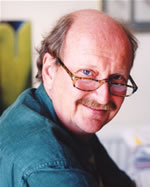 Considering how often I quote his research and writings, it’s appropriate to present background on this researcher, author, and critic of CAM.
Considering how often I quote his research and writings, it’s appropriate to present background on this researcher, author, and critic of CAM.
A reader has a different view, and comments accordingly.
Academic appointments
- 1978: Qualified as a physician in Munich (Germany) and completed his MD and PhD theses.
- 1988: Professor in Physical Medicine and Rehabilitation (PMR) at Hannover Medical School (Germany).
- 1990: Head of the PMR Department at the University of Vienna (Austria).
- 1993: Establish the worldwide first Chair in Complementary Medicine at the University of Exeter in the UK.
- Decided to test the claims of complementary medicine using the tools of science.
- Recruited a multidisciplinary, multinational team.
Examples of research that raised his profile in the CAM and allopathic communities.
- Despite the consensus that acupuncture was free of adverse effects, in 1999, Prof. Ernst showed that about 13% of patients using acupuncture reported adverse effects.
- Demonstrated in 2001 that the association between chiropractic and vertebral arterial dissection exists and is underreported.
- Demonstrated impressive placebo effects but no specific effects associated with spiritual healing in 2001.
- Reported in 2003 that “homeopathic arnica offers no advantage over placebo in reducing postoperative pain, bruising, and swelling following elective hand surgery.”
He has campaigned for application of the scientific method in CAM research, and demonstrated that complementary medicine can be scientifically investigated. This has resulted in a change in how the medical establishment looks upon complementary medicine and the way those conducting research on complementary medicines view scientific investigation.
In addition to his influence within the scientific community, Prof. Ernst has sought to inform the public about the evidence on the efficacy and safety of complementary medicine.
The bottom line?
His ultimate goal is to “apply the principles of evidence-based medicine to the field of complementary medicine such that those treatments which demonstrably do generate more good than harm become part of conventional medicine and those which fail to meet this criterion become obsolete.”
His goal is similar to that of this blog.
8/5/08 16:57 JR